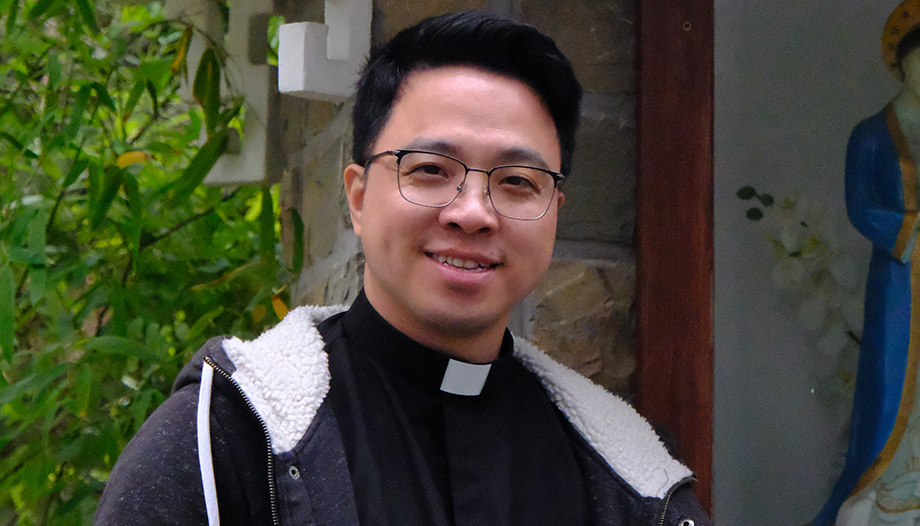Hailing from northern Vietnam, Joseph was born into a multi-generational Catholic family that is part of a religious community of about 100 Christians. When he was 12 years old, the example of a seminarian who came to his community moved him and led him to vocational discernment. Now, as a priest, he wants to serve the people in the land where he was born and raised.
How is living with people of other religions in Vietnam?
-There are currently 54 different ethnic groups in Vietnam. My country has a long history of religious diversity, with various religions and belief systems coexisting for centuries. From ancient religious forms such as totemism, shamanism and animism to Catholicism, Buddhism, Protestantism and Islam. This historical context has contributed to a relatively tolerant attitude towards different faiths. So I have to say that, although Christianity is a minority religion, we tend to participate in social and charitable activities that benefit the community at large, regardless of our religious affiliation. This fosters a good impression from others about Christian communities, particularly the Catholic community.
I know that this situation is very different in each region of Vietnam. In my case, my family lived in a small Christian community in a small town and we had no conflicts with our neighbors who do not share the same beliefs. Also, we are proud to be Catholics, but we also respect the beliefs of others.
What are the challenges facing the Catholic Church in a country like Vietnam?
-Today, it can be said that the Church in Vietnam still faces many challenges and difficulties in many aspects, such as atheistic ideology, prejudice towards Catholics, and inaccurate understanding of the Church's doctrine. Despite the difficulties and persecutions, the Church in Vietnam is growing day by day.
Moreover, the market economy and relativistic social theory have caused many young Catholics to have incorrect thoughts, leading them to worship material values and to forget the faith that our ancestors passed on with their precious blood.
I believe that whatever challenges it faces, the Church in Vietnam will always be loyal to the faith and to our Mother Church.
How do you see the future of the Church in your country?
-There are about 7 million Catholics in Vietnam, representing 7.4 % of the total population. There are 27 dioceses (including three archdioceses) with 2,228 parishes and 2,668 priests, and the Church in Vietnam is growing rapidly.
In fact, the number of vocations in the Vietnamese Church is very high. Many young people are willing to commit themselves to the religious path, becoming priests and religious to serve in the land of Vietnam, as well as to undertake missionary missions around the world. In my diocese of Thai Binh, a small diocese, we currently have about 100 seminarians and many religious, nuns and brothers. They are the future of the Church.
What does the formation you receive in Rome contribute to your ministry?
-Coming to Rome to study is not only my dream, but the dream of many Vietnamese believers. In my diocese the major seminary of the Sacred Heart of Thai Binh is being built, so teachers are needed. I want to study as much as I can so that I can return to serve intellectual formation in my diocese.
What do you appreciate most about your stay in Rome?
-Living and studying in Rome I feel more clearly a living, multiethnic, multicultural and mutually respectful Church. I live in a major college for priests from many different countries. This helps me to understand cultural integration, the beauty of fraternity and the exchange of knowledge and pastoral experiences.
I am very grateful to the CARF Foundation for making it possible for me to study at the Pontifical University of the Holy Cross in Rome. I always pray and remember those who have helped me on my path of vocation and study.








